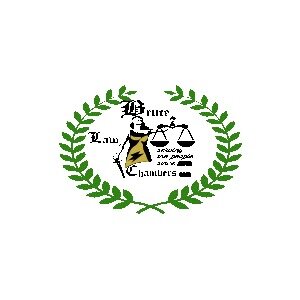Best Faith-Based Law Lawyers in Saint Vincent and the Grenadines
Share your needs with us, get contacted by law firms.
Free. Takes 2 min.
Or refine your search by selecting a city:
List of the best lawyers in Saint Vincent and the Grenadines
About Faith-Based Law in Saint Vincent and the Grenadines
Faith-Based Law in Saint Vincent and the Grenadines refers to the integration and recognition of religious laws and practices within the country's legal framework. This involves harmonizing traditional legal principles with religious beliefs and practices, affecting areas such as family law, inheritance, and community conduct. Given the country's diverse religious composition, including Christianity, Hinduism, and Islam, Faith-Based Law often plays a crucial role in personal and community matters. It provides a way for individuals to resolve disputes and manage affairs in a manner consistent with their faith while adhering to national laws.
Why You May Need a Lawyer
There are several situations where individuals might require legal assistance in matters of Faith-Based Law in Saint Vincent and the Grenadines:
- Drafting of religious wills and estates to ensure compliance with both religious guidelines and national laws.
- Resolution of family disputes, including marriage, divorce, and child custody, where religious practices are a key concern.
- Aiding in community-related issues that involve religious institutions, such as property disputes or governance of religious bodies.
- Representation in cases where religious rights and freedoms might be potentially infringed upon.
- Support in crafting religious contracts that are recognized by both the faith community and the legal system.
Local Laws Overview
The legal system in Saint Vincent and the Grenadines recognizes the importance of accommodating religious practices within its framework. Key aspects include:
- Constitutional Rights: The Constitution guarantees freedom of religion, allowing individuals to practice their faith openly and freely.
- Marriage and Family Law: While civil marriage is the norm, the law permits religious marriage ceremonies, provided they comply with national marriage laws.
- Inheritance Laws: Religious laws can influence how estates are structured, with provisions allowing for religious considerations in wills and inheritance arrangements.
- Property and Land Use: Religious organizations often have special considerations in property and land use, subject to local zoning and land use regulations.
Frequently Asked Questions
What is Faith-Based Law?
Faith-Based Law incorporates religious principles within the legal decisions and processes that govern personal and communal religious matters.
Can religious marriage ceremonies take place legally?
Yes, religious marriage ceremonies are recognized, provided they adhere to national marriage regulations and are registered with the relevant authorities.
How are religious disputes typically resolved?
Religious disputes may be resolved through mediation by religious leaders or through legal arbitration that respects both religious and national laws.
What role do religious laws play in inheritance matters?
Religious laws can play a significant role in how estates and inheritances are managed, influencing the drafting of wills to align with both legal and religious expectations.
Are there special considerations for religious holidays in employment law?
Employers are encouraged to respect religious holidays; however, accommodations typically depend on mutual agreement and employment contracts.
Can religious laws override national laws?
National laws take precedence, but the legal system aims to respect and integrate religious practices wherever possible, provided they do not conflict with national legal standards.
What protections exist for religious freedom?
The Constitution protects religious freedom, allowing individuals and communities to practice and express their faith without interference or discrimination.
Are there legal services specializing in Faith-Based Law?
Yes, there are legal practitioners with expertise in Faith-Based Law who can provide advice and representation in religion-related legal matters.
What is the process for setting up a religious organization legally?
Setting up a religious organization involves registering with the appropriate governmental bodies and adhering to specific guidelines regarding structure and operation.
Can religious leaders officiate legally recognized ceremonies?
Yes, religious leaders can officiate legally recognized ceremonies provided they are registered and authorized under national law.
Additional Resources
For those seeking more information or assistance in Faith-Based Law in Saint Vincent and the Grenadines, the following resources may be helpful:
- The Ministry of Ecclesiastical Affairs: Provides oversight and resources for religious matters within the government framework.
- Local Bar Associations: For finding lawyers specializing in Faith-Based Law.
- Councils of Churches and Religious Organizations: These bodies can offer guidance and resolution services for religious disputes.
Next Steps
If you require legal assistance in Faith-Based Law, consider the following steps:
- Identify the specific legal need and type of legal guidance required.
- Consult with a legal expert specializing in Faith-Based Law to ensure your religious rights and obligations are met.
- Gather all necessary documentation related to your case or legal matter.
- Engage with community or religious leaders who may provide additional support or context.
- Prepare for any mediation or legal proceedings in accordance with both religious and national legal guidelines.
Lawzana helps you find the best lawyers and law firms in Saint Vincent and the Grenadines through a curated and pre-screened list of qualified legal professionals. Our platform offers rankings and detailed profiles of attorneys and law firms, allowing you to compare based on practice areas, including Faith-Based Law, experience, and client feedback.
Each profile includes a description of the firm's areas of practice, client reviews, team members and partners, year of establishment, spoken languages, office locations, contact information, social media presence, and any published articles or resources. Most firms on our platform speak English and are experienced in both local and international legal matters.
Get a quote from top-rated law firms in Saint Vincent and the Grenadines — quickly, securely, and without unnecessary hassle.
Disclaimer:
The information provided on this page is for general informational purposes only and does not constitute legal advice. While we strive to ensure the accuracy and relevance of the content, legal information may change over time, and interpretations of the law can vary. You should always consult with a qualified legal professional for advice specific to your situation.
We disclaim all liability for actions taken or not taken based on the content of this page. If you believe any information is incorrect or outdated, please contact us, and we will review and update it where appropriate.
Browse faith-based law law firms by city in Saint Vincent and the Grenadines
Refine your search by selecting a city.










